AMANTADINE - ORAL
PHONETIC PRONUNCIATION: (a-MAN-ta-deen)
COMMON BRAND NAME(S): Symmetrel
GENERIC NAME(S): amantadine HCl
Uses
USES: Amantadine is used to prevent or treat a certain type of flu (influenza A). If you have been infected with the flu, this medication may help make your symptoms less severe and shorten the time it will take you to get better. Taking amantadine if you have been or will be exposed to the flu may help to prevent you from getting the flu. This medication is an antiviral that is believed to work by stopping growth of the flu virus. This medication is not a vaccine. To increase the chance that you will not get the flu, it is important to get a flu shot once a year at the beginning of every flu season, if possible. Based on the recommendation from the Centers for Disease Control (CDC) in the US, amantadine should not be used to treat or prevent influenza A because the current influenza A virus in the United States and Canada is resistant to this medication. For more details, talk to your doctor or pharmacist. Amantadine is also used to treat Parkinson's disease, as well as side effects caused by drugs (e.g., drug-induced extrapyramidal symptoms), chemicals, other medical conditions. In these cases, this medication may help to improve your range of motion and ability to exercise. For the treatment of these conditions, amantadine is believed to work by restoring the balance of natural chemicals (neurotransmitters) in the brain.
How to use AMANTADINE - ORAL
HOW TO USE: Take this medication by mouth with or without food, usually once or twice daily or as directed by your doctor. If you are taking this medication twice a day and have trouble sleeping after taking it, take the second dose several hours before bedtime. If you are using the liquid form of this medication, carefully measure the dose using a special measuring device/spoon. Do not use a household spoon because you may not get the correct dose. Dosage is based on your medical condition and response to therapy. In children, the dosage is also based on body weight. Do not take more than prescribed by your doctor. This medication works best when the amount of medicine in your body is kept at a constant level. Therefore, take this medication at evenly spaced intervals throughout the day and night. If you are taking amantadine for a viral infection, begin taking it as soon as possible. Continue taking it until the full prescribed amount is finished, even if symptoms disappear after a few days. Stopping the medication too early may result in a relapse of the infection. In Parkinson's disease, the effects of the medication may not be noticed for several weeks. Do not suddenly stop taking the medication because symptoms or side effects may worsen. Your doctor may want to reduce your dose gradually. This medication may not work as well after it has been taken for several months. Tell your doctor if this medication stops working well.
Side Effects
Precautions
Interactions
Overdose
Images
Reviews
Faq for AMANTADINE - ORAL
Amantadine is primarily used to treat Parkinson's disease and certain symptoms of Parkinsonism.
Amantadine works by increasing the levels of dopamine in the brain, which helps to improve muscle control and reduce tremors and stiffness.
Common side effects of Amantadine include nausea, dizziness, headache, dry mouth, blurred vision, and constipation. It may also cause difficulty sleeping, confusion, or psychiatric symptoms in some individuals.
The use of Amantadine during pregnancy is not recommended unless the benefits clearly outweigh the potential risks. It is essential to consult with a healthcare professional before using this medication while pregnant.
Amantadine can be prescribed for use in children, specifically for the treatment of influenza A virus infection. The dosage should be determined by a pediatrician based on the child's weight and medical condition.
Consuming alcohol while taking Amantadine may increase the risk of certain side effects, including drowsiness and dizziness. It is advisable to consult with a healthcare provider regarding the safe use of alcohol while on this medication.
The onset of action for Amantadine varies depending on the condition being treated. Some individuals may experience improvements within a few days, while for others, it might take several weeks to notice the full effects.
Yes, Amantadine may interact with other medications, including antihistamines, antipsychotics, and certain antidepressants. It is crucial to inform the healthcare provider about all medications, supplements, or herbal products being taken to avoid potential drug interactions.
Abruptly stopping Amantadine can lead to withdrawal symptoms or a worsening of the condition being treated. It is essential to consult with a healthcare professional for guidance on how to taper off the medication gradually.
Disclaimer
IMPORTANT: HOW TO USE THIS INFORMATION: This is a summary and does NOT have all possible information about this product. This information does not assure that this product is safe, effective, or appropriate for you. This information is not individual medical advice and does not substitute for the advice of your health care professional. Always ask your health care professional for complete information about this product and your specific health needs.
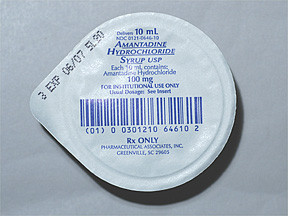
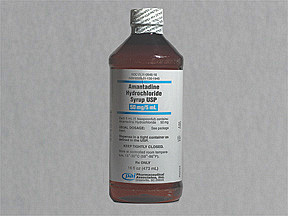
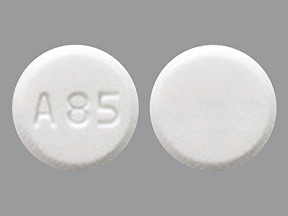
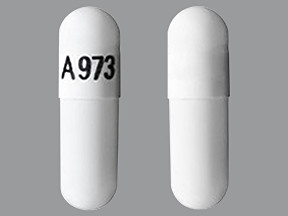

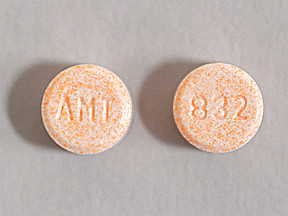
No Reviews Yet